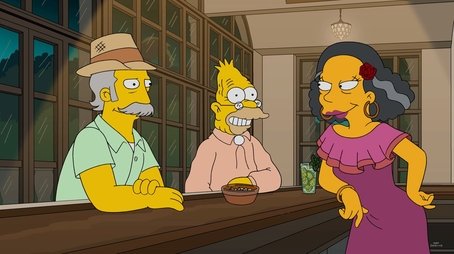
Sorry, we have not watched this yet.

When the Retirement Castle and the V.A. Hospital can’t solve Grampa’s health issues, the Simpsons decide to take a family trip to Cuba to get him cheap medical care.
Sorry, we have not watched this yet.